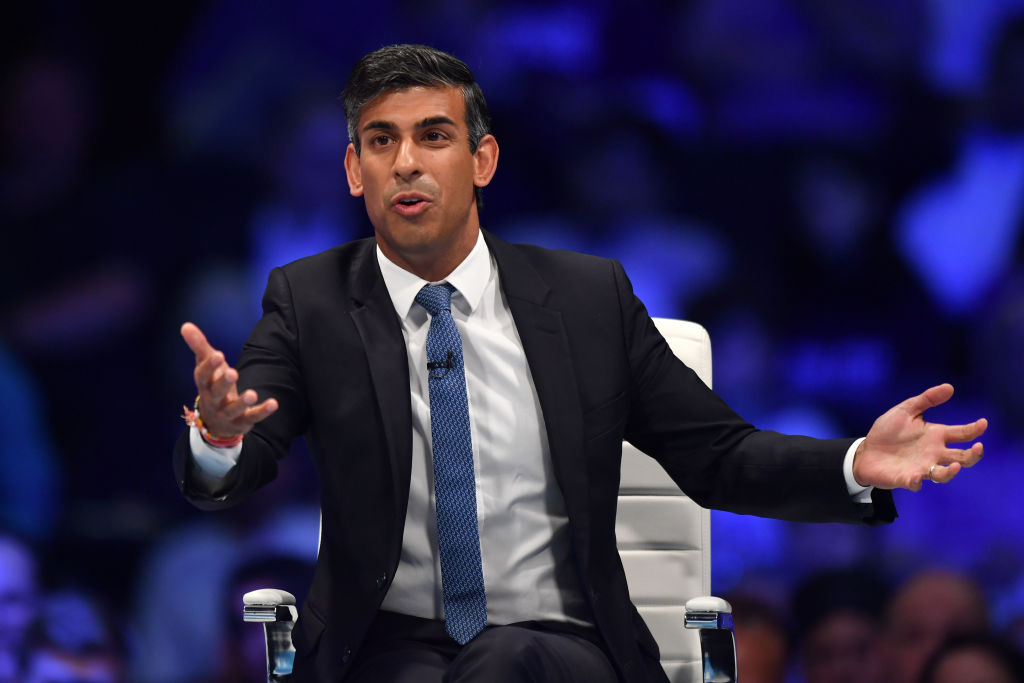Rishi Sunak’s demise was sealed long before he ever threw his hat in the ring

There are few guarantees in life, but it seems a racing certainty that this time next week Liz Truss will be Prime Minister. The Foreign Secretary may have started slowly amongst MPs but since making the final round she has led every poll of the membership, usually by margins which would require an implausibly large polling error for her opponent to overcome.
Her coming victory means a crushing defeat for Rishi Sunak, the former Chancellor who has irritated many an ally with an erratic campaign that combined Pooterish policy announcements with acerbic attacks on the frontrunner. The temptation is of course to blame Sunak’s defeat on a poor campaign, but Sunak’s fate was sealed long before then.
As society slowly returned to normal last year, public services desperately needed more money to address the backlogs caused by lockdown and government debt had reached new heights. Sunak believed the Conservatives should prioritise getting the public finances in order. He sought to achieve this by resisting additional spending and funding the few real rises he allowed with tax increases. Increasing national insurance to pay for the additional funding directed to the NHS was the defining example.
It’s easy to forget now but this approach discombobulated those across the aisle. The Labour Party was caught between arguing that both the spending increases were too few and that the tax rises were too many. Arguably, his reluctance to increase the deficit has been vindicated by the high inflation we now expect to see for months to come. Initial polling about what was literally a tax and spend package, was positive, with swing voters more likely to support it than committed partisans on either side.
But this was Sunak’s first problem; most Tories hated his approach. Those on the party’s left worried the government wasn’t spending enough to help people through difficult times, whilst those on the right despaired at the growing tax burden. And as the economic situation worsened, Sunak’s principled and tactical opposition to increased borrowing, seemed to make further spending cuts and tax increases more likely than not.
Having placed himself at ideological odds with many within his party, Sunak’s personal reputation was badly damaged as the government became mired in scandal. He was personally fined for breaking lockdown rules, and his personal affairs – including his US green card and his wife’s tax status – were thrown into the spotlight.
More broadly, the pressures placed on the government during this period destroyed his relationship with his next-door neighbour. Those close to Boris Johnson began to believe that Sunak wasn’t doing enough to support him, whilst the prime minister chaffed at his chancellor’s reluctance to sign-off on a package of tax cuts and spending increases to relaunch his premiership.
Taken together these setbacks left Sunak with no plausible pitch for the Tory Leadership. He couldn’t promise to change the government’s approach on the core issues of the day, because he himself had imposed that direction on a reluctant party. He couldn’t claim to be the fresh start an otherwise popular government needed to put the scandals behind it, because he had been caught up in Partygate. And he couldn’t position himself as the heir to Boris Johnson, because even before he resigned in protest, everyone had realised that the two men were at loggerheads.
Sunak’s campaign, in a sense, overachieved by convincing MPs to rally around him. He might have done himself and those who believed in him far more good if he had chosen not to stand, and instead backed a compromise candidate that would have welcomed him back to the Treasury.
Instead, he will have to watch as he is badly beaten and the next government aggressively defines themselves as the antithesis of his record at the Treasury by cutting taxes, increasing borrowing, and dashing for growth.
It is a spectacular fall from grace, and one that began long before this leadership election began.
